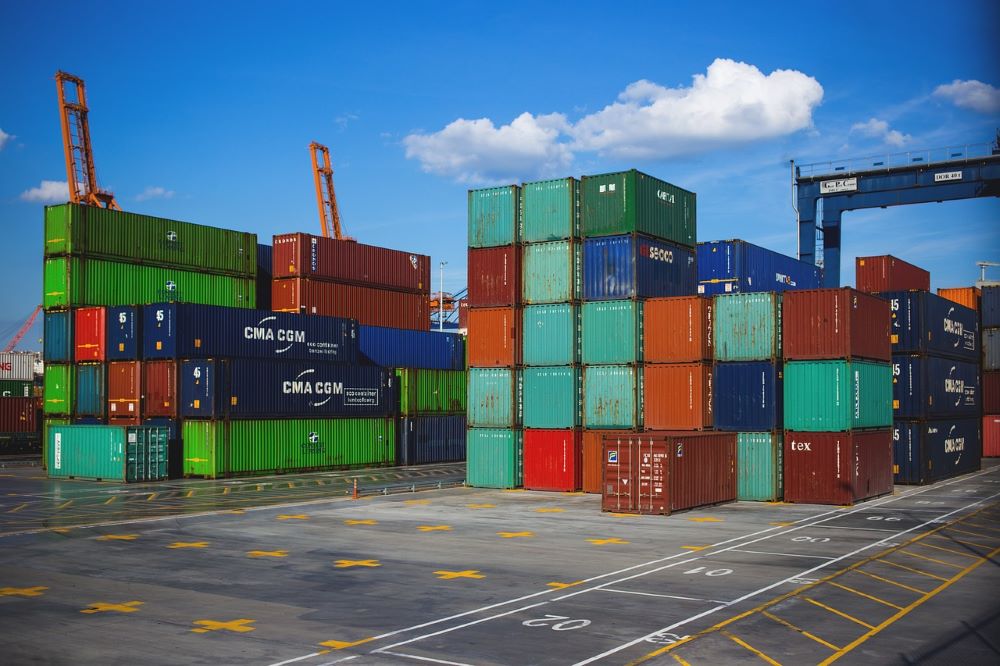The challenges of transporting lithium-ion batteries
The common thread running through lithium batteries is safety, which is addressed at every stage of the battery’s life: from receipt of the lithium cells, through transport, right up to their integration into the final application.
Lithium batteries, whatever their chemistry, contain flammable and therefore potentially dangerous chemical substances. These substances increase the risk of fire and explosion in the event of improper handling or unfavorable environmental conditions.
What’s more, the high energy density of lithium-ion batteries means that a considerable amount of energy is concentrated in a small space, which can exacerbate the consequences of an incident.
Considered Class 9 dangerous goods, lithium-ion batteries must therefore be handled with care, and must comply with strict standards and regulations during transport.
Safety standards for transporting lithium-ion batteries
The main aim of these standards and regulations is to ensure safe transport operations and minimize the risks associated with lithium batteries. They define strict requirements for the packaging, labeling and handling of batteries to prevent incidents such as fires, explosions or chemical leaks.
To meet these challenges, international regulatory bodies such as the United Nations (UN), the International Air Transport Association (IATA) and the International Civil Aviation Organization (ICAO) play a key role in developing and implementing these standards. They ensure that lithium batteries are transported safely by air, sea and land. UN 38.3 certification, which is mandatory (except for prototypes not exceeding 100 units), has been specifically designed to assess the safety of lithium batteries during national or international transport. (see insert).
Transport standards for lithium batteries cover various aspects, such as secure packaging, appropriate labelling and specific handling instructions. The packaging used must be strong enough to protect the batteries against shock, vibration and adverse environmental conditions.
In addition, batteries must be insulated and protected against short-circuits.
What is UN 38.3?
The UN 38.3 standard for the transport of batteries plays an essential role in ensuring the safe transport of these energy devices. This standard was developed by the United Nations (UN) and is specifically designed to assess the safety of lithium batteries during transport.
UN 38.3 establishes rigorous test procedures and criteria for assessing the performance of lithium batteries under conditions representative of those encountered during transport. These tests include assessments of stability, shock resistance, electromagnetic compatibility, overcharge, temperature, vibration, thermal shock, impact, compression and altitude simulation.
By requiring lithium batteries to meet the requirements of UN 38.3, regulators and carriers can ensure that these batteries are manufactured and packaged in such a way as to minimize the risk of short-circuiting, fire, explosion or chemical leakage. This ensures greater reliability during transport, and helps protect the safety of people and property.
In addition, UN 38.3 includes detailed guidelines on appropriate packaging, labeling and documentation for lithium batteries. This helps to reduce potential errors during transport, and ensures better traceability of batteries, facilitating their identification and tracking throughout the supply chain.
It should be noted that UN 38.3 is widely accepted worldwide, and is often adopted by national and international regulations governing the transport of lithium batteries. This creates a common and consistent standard, facilitating international trade while ensuring uniform safety standards.
Restrictions on the transport of lithium batteries
In principle, lithium batteries can be transported by any mode of transport, but each dictates its own rules.
According to air transport regulations, high-voltage batteries must be pre-checked before traveling by cargo plane. Even if some of them are professionally packed and have the required documentation, air shipment is not always an option if the batteries weigh more than 35 kg.
Lithium-ion batteries weighing over 35 kg are considered dangerous goods. Consequently, their transport is subject to specific rules to ensure the safety of passengers and crew:
- Prior authorization from the airline before shipping lithium-ion batteries.
- Appropriate packaging in compliance with dangerous goods regulations. This usually involves the use of special shock- and leak-proof packaging, designed to prevent short circuits and fire hazards.
- Labeling and documentation to indicate their hazardous nature. In addition, specific documents, such as the dangerous goods declaration, are mandatory for transport.
Specific restrictions may apply, depending on the airline and destination (e.g. the USA). Some airlines may limit the total quantity of lithium-ion batteries that can be carried on a flight, or impose restrictions on passenger versus cargo flights. If shipment by air is refused, the lithium-ion batteries will have to be transported by another means to reach their destination, bearing in mind that transporting batteries weighing more than 35 kg by train is quite simply forbidden.
In addition to the restrictions induced by the weight of lithium batteries, the charge rate of batteries transported must also be taken into account. The charge rate for batteries shipped by air must not exceed 30%, whereas it is 70% for other modes of transport. However, some shipping companies require the same charge rate as for air freight, to limit potential incidents such as explosion or fire.
Another factor to consider is the maximum temperature during transport, particularly by sea, where journey times are longer than by other modes of transport, and the risk of incidents is therefore greater. Even if our lithium battery solutions can withstand temperatures between -30 and 55°C ( -22 and 131°F), a temperature of over 45°C / 113°F for more than a month severely degrades battery performance and increases the risk of incidents. During the warmer months, or in destinations with very high temperatures, we require transport and storage conditions of between 15 and 20 °C ( 59 and 68°F).
Training requirements for transporting lithium batteries
Workers involved in transporting lithium batteries must be trained in the appropriate procedures, current regulations and specific safety measures relating to these batteries. This includes knowledge of the characteristics of lithium batteries, the associated risks such as fire and explosion, and the preventive measures to be taken in the event of an emergency.
Proper training enables transport professionals to take the necessary precautions and reduce the risk of incidents when transporting lithium batteries.

Forsee Power batteries UN 38.3 and OEA-F certified for secure transport
Forsee Power batteries for the electromobility market all comply with the UN 38.3 standard mentioned earlier in this article. This means that our batteries can be transported safely by any logistical means to our customers’ place of delivery.
In addition, and to take our security approach a step further, Forsee Power was certified as an Authorized Economic Operator (AEO-F) in June 2022 to reinforce the security and safety of our international commercial operations. Although the AEO program is not specifically focused on the transportation of lithium batteries, it can nevertheless help to ensure their safety and security in trade.
As an AEO, Forsee Power is recognized by customs authorities as a reliable and secure partner throughout the supply chain.
It is important to note that Forsee Power’s AEO status alone does not guarantee the absolute safety of lithium batteries. We comply with applicable national and international regulations, as well as implementing appropriate safety and security measures in line with industry best practice.
This AEO status enables our Group to:
Simplified customs controls: As an AEO, customs controls on shipments of Forsee Power lithium batteries can be simplified, enabling them to be processed faster and more efficiently, thus reducing the time and risks associated with customs operations.
Information exchange with customs authorities: Forsee Power benefits from a privileged relationship with customs authorities, enabling us to share information and intelligence on lithium batteries, including associated risks, current regulations and best safety practices.
A secure supply chain: Like all AEOs, Forsee Power is required to implement appropriate security measures throughout its supply chain. This includes strict control procedures to verify the safety of lithium batteries and prevent the risk of counterfeiting, theft or illicit trafficking.

